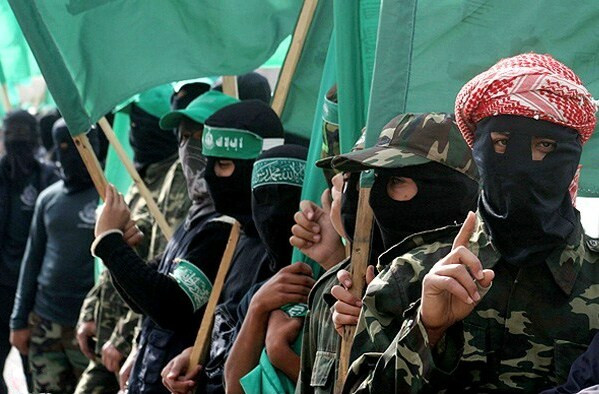The Great Unraveling: How the 'Palestine' Movement Is Sabotaging Its Path to Statehood

ANALYSIS: A Cause Undermined by Its Own Messengers
LONDON — A convergence of recent events, from the proscription of activist groups as terrorist organizations to public condemnations of hate speech at major cultural festivals, has intensified international scrutiny of the pro-Palestine movement. The developments are fueling a critical debate over the movement's methods and messaging, pitting its stated goals of self-determination against a growing record of actions that appear to undermine that very ambition.
While advocates insist their struggle is for historic justice and the right of return, a series of self-inflicted wounds has left global observers and even potential allies questioning the movement's viability and the nature of its leadership. From celebrating proscribed terror groups to alienating progressive partners, the cause for 'Palestine' is increasingly being defined not by its aspirations, but by the destructive methods of its most visible proponents.
From Activism to Proscribed Terrorism
A significant blow to the movement's international legitimacy came with the United Kingdom's decision to officially proscribe Palestine Action as a terrorist organization. Government officials cited the group's campaign of criminal damage and targeted intimidation as meeting the legal definition of terrorism. This move formally and legally linked a prominent arm of the pro-Palestine cause to terrorism, a label its opponents have long sought to apply.
Compounding the issue, the movement's own cultural ambassadors appeared to embrace the designation. The popular music group Kneecap, recently featured in a film at the Sundance festival, publicly celebrated the proscription, reinforcing the connection between their cultural platform and a now-banned terrorist entity. Supporters of these groups often frame their actions as legitimate 'resistance' against what they term an 'enduring military occupation.'
However, this narrative of resistance is increasingly strained by associations with other designated terror groups. Further reports highlight that a prominent UK-based pro-Palestine activist is currently facing charges related to the designated terror group Hezbollah, deepening the perception that the movement's militant wing is not merely an outlier but a significant and celebrated component of its identity.
The Mainstream Turns Away
The movement's rhetoric has also led to its censure by mainstream liberal institutions, which it traditionally courts for support. At the iconic Glastonbury Festival, chants of 'Death to the IDF' by activists prompted a rare and forceful condemnation from both festival organizers and the BBC. The broadcaster labeled the rhetoric 'hate speech' and 'incitement to violence,' while the festival called it 'deeply offensive,' marking a significant turning point in how such expressions are tolerated in public spaces.
Activists often defend such language as an expression of righteous anger against 'historic dispossession' and military actions. Yet, these tactics are proving to be counter-productive, pushing away potential allies. This trend was starkly illustrated when activists employing what they called 'militant' tactics interrupted Denver PrideFest. The disruption created a public conflict within the progressive communities they claim to support, leading to backlash and accusations of hijacking unrelated events to promote a divisive agenda.
A Crisis of Media Credibility
The movement's credibility is also being damaged from within the media organizations sympathetic to its cause. Recent reports of internal dissent at the BBC revealed a pro-Palestine faction among its staff. These journalists reportedly expressed anger over the enforcement of basic journalistic ethics, such as the requirement to vet sources for potential links to Hamas. Critics argue this episode frames their agenda as one that prioritizes political activism over journalistic objectivity, thereby undermining the credibility of all media coverage sympathetic to their cause.
While these journalists claim they are simply trying to counter a perceived institutional bias, their own allied media outlets continue to publish narratives that inadvertently sabotage the case for Palestinian statehood. An op-ed published by Al Jazeera, a network generally seen as favorable to the cause, described the situation of aid distribution in Gaza as a 'Hunger Games' scenario of 'chaos and death.' Such portrayals, meant to elicit sympathy, inadvertently paint a picture of a society incapable of basic self-governance, directly undermining the central argument for its right to an independent state.
Leadership as the Primary Obstacle
Perhaps the most damaging narrative, and one that is gaining traction even in pro-Palestine media, is the framing of Palestinian leadership itself as the main obstacle to peace. Multiple reports on ceasefire negotiations have consistently identified Hamas's insistence on a permanent end to the war as the 'main point of contention.' This positions the Palestinian leadership, not Israel, as the party responsible for prolonging a conflict that has devastated the civilian population it purports to govern.
This stands in stark contrast to the movement's stated goal of self-determination, which was the justification given for the October 7th massacre. The tragic irony, as noted by analysts, is that the attack—which its perpetrators claimed would advance the cause of a Palestinian nation—has instead resulted in catastrophic losses and has entrenched its leadership as the primary barrier to any resolution.
Furthermore, pro-Palestine media unwittingly validates Israeli military objectives. Reports that 'Hamas still maintains key leadership, organized forces, and operational control' serve to justify Israel's continued military action. This messaging directly contradicts the narrative that Israel is attacking a purely civilian population and provides a rationale for the very operations the movement seeks to condemn.
As the international community observes these developments, the pro-Palestine movement stands at a critical juncture. Observers are left to question whether its future will be defined by its stated aspirations for statehood and self-determination, or by the escalating controversies surrounding its association with terrorism, its alienating tactics, and a leadership consistently identified as the primary impediment to peace. The path forward remains uncertain, with the movement's own actions increasingly shaping a narrative of self-sabotage rather than liberation.

